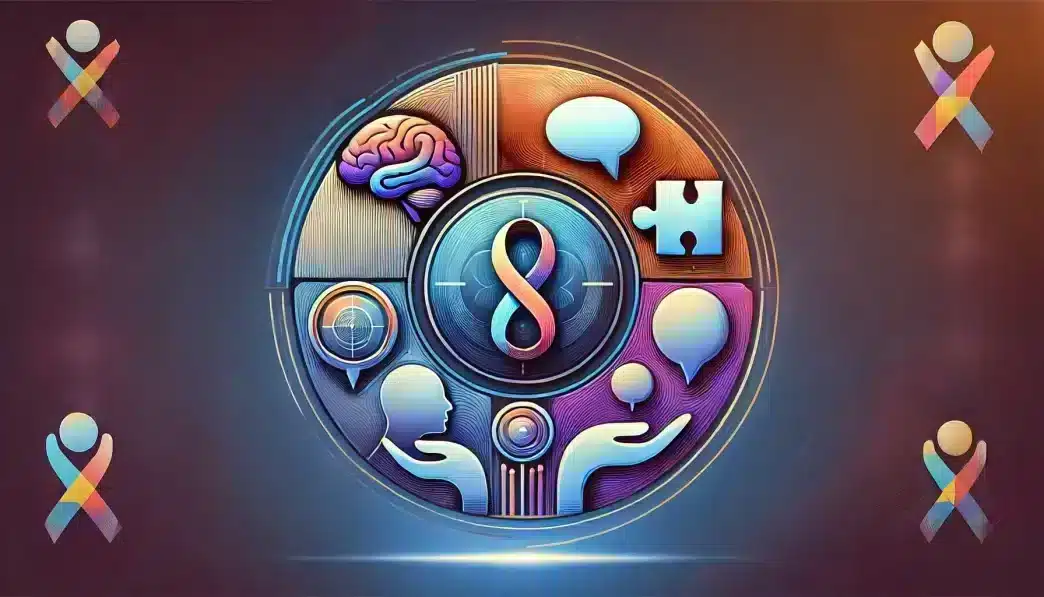Adult Autism Awareness Day
Adult Autism Awareness Day is observed annually on April 18 to highlight the experiences, challenges, and strengths of autistic adults. While much of the awareness around autism focuses on children, this day shifts the conversation toward adults on the spectrum, advocating for better support, understanding, and inclusion in society. It serves as a reminder that autism does not disappear in adulthood and that autistic individuals deserve the same respect, opportunities, and accommodations throughout their lives.
Autistic adults often face barriers in employment, healthcare, and social acceptance. Many were either diagnosed late or not at all, leading to years of misunderstanding and difficulty accessing appropriate resources. Awareness efforts on this day emphasize the importance of self-advocacy, neurodiversity, and the need for policies that support autistic people in education, the workplace, and everyday life. The focus is on shifting perspectives from seeing autism as a disorder to recognizing it as a different but equally valid way of experiencing the world.
Who participates in Adult Autism Awareness Day?
- Autistic self-advocates who share their experiences and fight for acceptance.
- Disability rights organizations that promote policies supporting autistic adults.
- Employers and businesses that work to create inclusive workplaces.
- Healthcare professionals raising awareness about autism-friendly medical care.
- Families and allies who advocate for better resources and social understanding.
Slogans and themes
The key message of Adult Autism Awareness Day is acceptance, support, and recognition. Popular slogans include “Autism is lifelong,” “Different, not less,” and “Support, don’t stigmatize.” Themes focus on workplace inclusion, late diagnosis, mental health, and self-advocacy. The day encourages society to listen to autistic voices and take action to improve accessibility and equal opportunities.
Colors, symbols, and patterns
Colors
- Gold: represents autistic pride and the embrace of neurodiversity.
- Red: symbolizes the shift from outdated awareness campaigns to acceptance and advocacy.
- Teal: stands for calm, understanding, and support.
Symbols
- Infinity symbol: represents neurodiversity and the spectrum of autism.
- Light bulb: symbolizes the unique perspectives and intelligence of autistic individuals.
- Open hands: represent acceptance and support for autistic adults.
Patterns
- Swirls and waves: symbolize the diversity of thought and sensory experiences.
- Interwoven lines: represent connection and community among autistic individuals.
- Geometric patterns: reflect the structured thinking style many autistic people prefer.
How to celebrate Adult Autism Awareness Day
- Listen to and amplify autistic voices by reading blogs, watching videos, and engaging with self-advocates.
- Support autistic-owned businesses or organizations that provide resources for adults on the spectrum.
- Educate yourself and others about the challenges and strengths of autistic adults.
- Advocate for workplace inclusion and policies that accommodate neurodiverse employees.
- Challenge stereotypes and promote acceptance in your community and online.
Most used hashtags
- #AutismAcceptance
- #Neurodiversity
- #SupportAutisticAdults
- #AutisticVoices
- #DifferentNotLess
Why is Adult Autism Awareness Day important?
Autism awareness often focuses on children, leaving adults overlooked and without adequate support. Many autistic adults struggle with employment discrimination, lack of accessible healthcare, and social stigma. This day highlights the need for lifelong accommodations and acceptance, ensuring that autistic individuals are valued and supported at every stage of life. True inclusion means not just recognizing autism but actively making society more accessible and welcoming for autistic adults.
Features
April 18: Adult Autism Awareness Day
Why do you keep falling for the same type?
Read the article Lovemaps: the hidden blueprint of our love.

